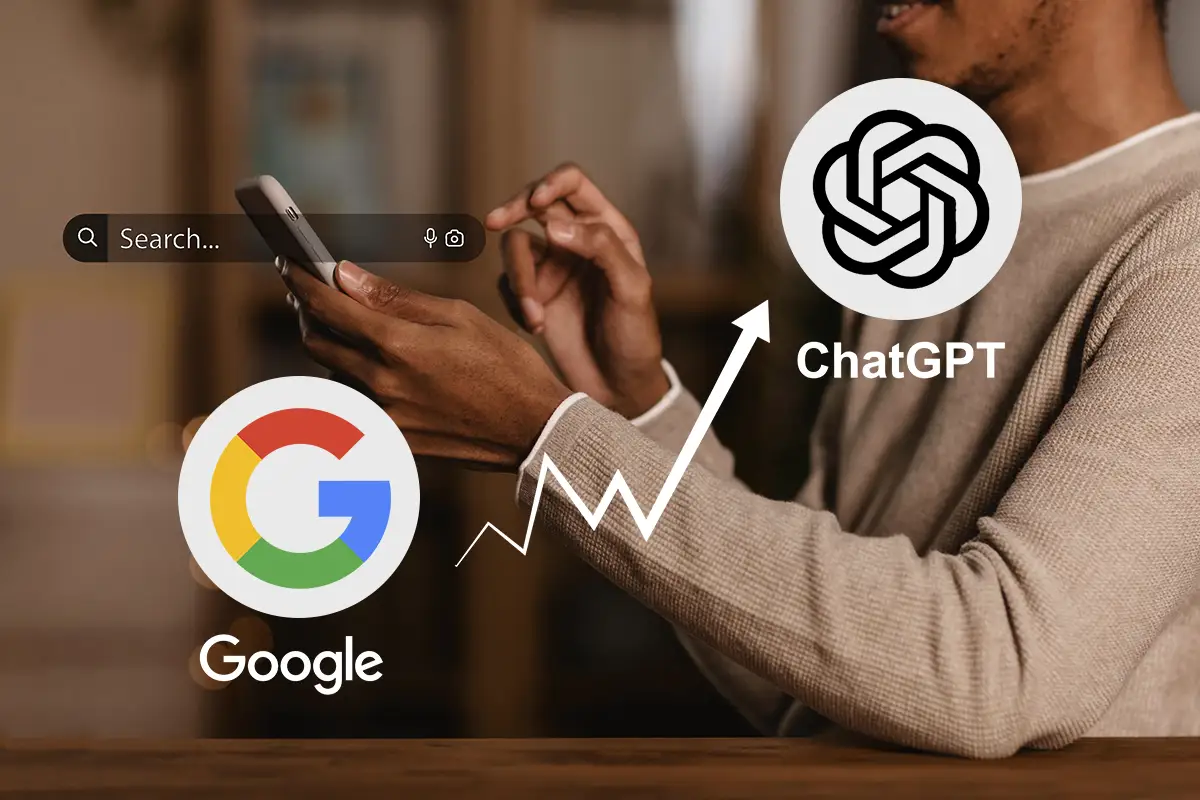
When OpenAI launched ChatGPT in November 2022, discussions around AI taking our jobs dominated headlines. Some tech enthusiasts, however, speculated that ChatGPT could become the next Google—the go-to platform where internet users could get answers to almost anything with just a few prompts. Unlike Google, where users must sift through multiple webpages for the most accurate response, AI chatbots like ChatGPT instantly provide the most probable and accurate answer to inquiries.
ChatGPT’s ability to solve complex problems in math and science, assist with language learning, generate images, and analyse data quickly made it popular among students, researchers, and professionals. In response, by 2023, tech companies like Google and Microsoft began rolling out their own AI chatbots. These AI chatbots were later integrated into their search engines, Google Search and Microsoft Bing—the world’s leading search engines.
Since then, AI chatbots have taken the tech world by storm. With every major tech company and startup racing to launch their own AI models, what started with ChatGPT soon led to the introduction of Bard AI (later rebranded as Gemini), Microsoft Copilot, Grok AI, Meta AI, DeepSeek, Manus AI, name them…
Despite slight differences in features, all these AI models rely on vast amounts of web data collected over the years, including tweets, posts, and uploads. (We previously explained this in detail in Behind the Scenes of AI: Understanding How AI Works in Simple Terms.
On 31 March 2025, Google Trends data showed a global spike in users searching for ‘ChatGPT,’ surpassing searches for ‘Google.’ While this could be influenced by multiple factors, such as the recent ChatGPT Studio Ghibli trend, the impact of users typing “Google” in the browser URL bar to access the Google Search homepage can’t be ruled out.
This shift suggests a growing trend of internet users relying on chatbots like ChatGPT for answers instead of traditional search engines.
A similar shift has been observed with AI integrations in platforms like X (formerly Twitter) and WhatsApp.
Previously, users had to switch between apps for a quick search while texting or using social media. Now, they can instantly ask Grok or Meta AI for answers without leaving the chat, and without the other person realizing they searched for it.
Because of their limitations, AI chatbots like Grok on X and Meta AI on WhatsApp often fall short in handling complex tasks. This has further pushed users to rely more on advanced AI tools, especially OpenAI’s ChatGPT, a key player in the field.
Will ChatGPT and Other AI Replace Google and Other Search Engines?
While ChatGPT and similar AI tools provide convenience, search engines like Google and Microsoft Bing still possess significant advantages. According to an analysis by SparkToro co-founder Rand Fishkin, the number of Google searches (actual usage) has consistently increased each year, and Google Search handles 373x more queries than ChatGPT.
Generative artificial Intelligence chatbots such as ChatGPT, Grok, and Perplexity AI, similar to search engines, are not only providing direct answers but also citing verifiable sources, research papers, and diverse viewpoints, specifically what AI-integrated Google and Bing search engines do when you perform a search.
With AI tools becoming more advanced and deeply embedded in daily tasks, one question arises: Are these chatbots positioning themselves as the next evolution of search engines?
Given their expanding capabilities, it may just be a matter of time…
While it remains uncertain whether ChatGPT will surpass Google as the primary search tool, the current trends suggest a significant shift in user behaviour.
